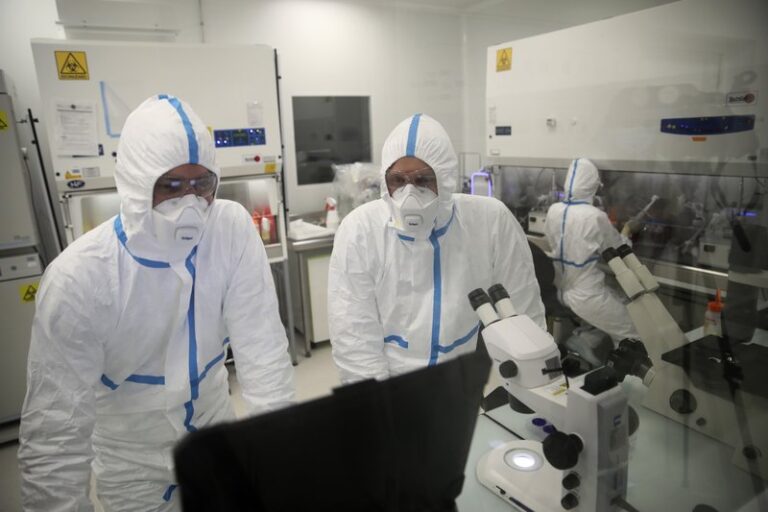
(AP) — French pharmaceutical startup Valneva had big news in September: a government contract for 60 million doses of its coronavirus vaccine candidate.
The buyer? The United Kingdom — not the European Union, as might be expected for a company on the banks of the Loire.
“What a true waste,” bristled Christelle Morancais, president of the Pays de la Loire regional council, as she tried to wrap her head around the missed opportunity. The British, she told The Associated Press, “rolled out the red carpet for this company, helping with financing and the set-up. … And we were powerless.”
The U.K. has now ordered another 40 million doses and has options for more from Valneva, which has a plant in Scotland. The EU is still in talks with the company.
That pattern of Britain investing aggressively and early while the EU takes a slower, more cautious approach has been the hallmark of the vaccine race in Europe — and offers a window into problems that have dogged the vaccination rollout by the world’s biggest trading bloc.
As with other countries that moved quickly, negotiating contracts earlier has helped Britain avoid some of the vaccine supply problems the 27-nation EU has faced — as when AstraZeneca said it hit a production issue. Valneva President Franck Grimaud told the AP that Britain will receive vaccine doses earlier because it signed first.
But the U.K. has also shown speed and agility in other areas: Its regulatory agency has authorized vaccines more quickly than the EU’s, and its government has experimented with stretching out the time between shots — allowing it to roll out first doses faster so more people can have some protection quickly.
The EU has been more cautious on both counts. While bloc is still getting and distributing vaccines, unlike much of the world, it has so far left been in the U.K.’s rearview mirror. Britain has given at least one shot to about 15% of its population, compared to some 3% in the bloc. This is not only a matter of pride: The EU has already lost more than 470,000 people out of 450 million to the pandemic, and uncounted others who were not tested before they died.
Diane Wanten, from Alken, Belgium, survived a bout with COVID-19 that put her in intensive care last spring. The 62-year-old now badly hopes for shots for herself and her husband Francesco, who has Parkinson’s. “If there is a vaccine for me tomorrow, I’ll be in line,” she said.
Source : RSS,






